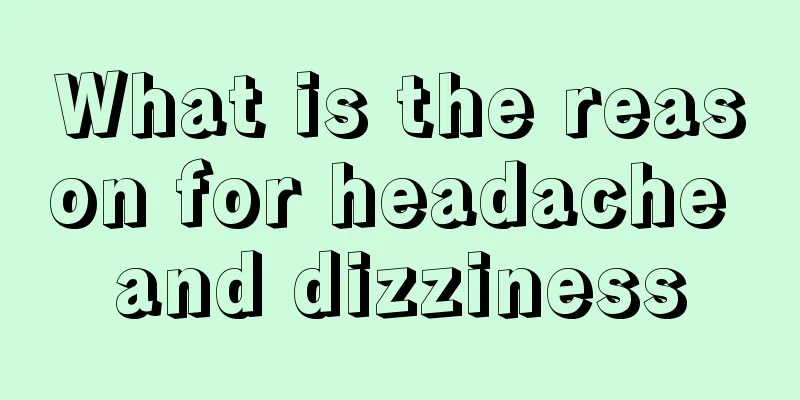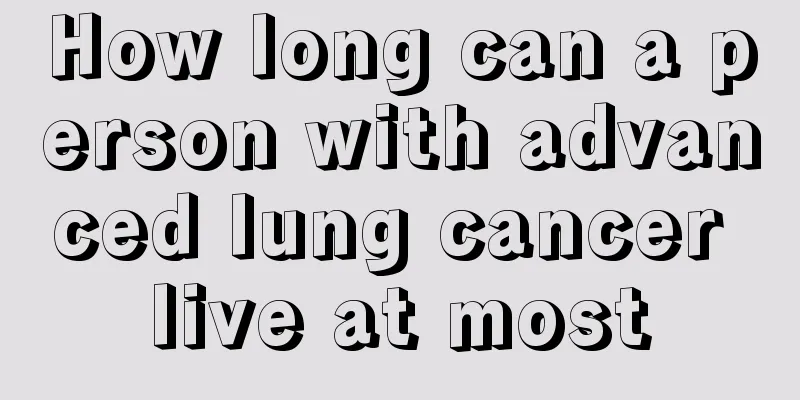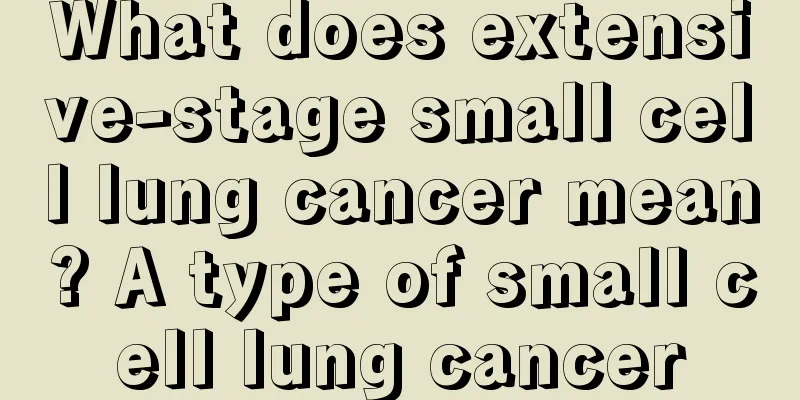What is the reason for headache and dizziness

|
Headache is a relatively complex symptom that can occur alone or as a symptom of other diseases. In daily life, some people will experience headaches and dizziness. The cause of the headache and dizziness is naturally of great concern. This symptom is more consistent with insufficient blood supply to the brain. We can fully understand the situation of insufficient blood supply to the brain and make a judgment based on other physical symptoms. Clinical manifestations 1. Abnormal mental consciousness If you always feel sleepy and feel groggy all day long, it is not caused by excessive fatigue, but a precursor sign of insufficient blood supply to the brain. Some people also experience insomnia, some have some changes in personality, such as being lonely, taciturn or indifferent, some are talkative and irritable; some may experience brief loss of consciousness or intellectual decline, or even loss of normal judgment, all of which are related to insufficient blood supply to the brain. 2. Motor nerve dysfunction This type of premonitory symptom is the most common. Due to insufficient blood supply to the brain, the nerves controlling the body's motor functions malfunction. Common manifestations include sudden crooked mouth, drooling, difficulty speaking, slurred speech, aphasia or inarticulate speech, difficulty swallowing, weakness or poor movement of one limb, dropping of held objects, unsteady walking or sudden falls, and some people experience limb spasms or twitching. 3. Sensory dysfunction Due to insufficient blood supply to the brain, the analytical areas, sensory organs and sensory nerve fibers of the brain are affected, often manifesting as numbness of the face, tongue, lips, and one side of the limbs or a foreign body sensation; some have blurred vision or even sudden temporary blindness; many people have sudden dizziness; some have spontaneous limb pain; others suddenly experience tinnitus, hearing loss, etc. treat 1. Remove risk factors Such as treating high blood pressure, quitting smoking, and prohibiting excessive drinking. 2. Antiplatelet drugs Aspirin, an antiplatelet drug, is the first choice. It can effectively prevent platelets from clumping together, which is good for blood circulation and blood supply to the brain. 3. Anticoagulant drugs Anticoagulants and antiplatelet drugs have the same effect, both of which can improve blood flow, increase blood supply to the brain, and reduce the incidence of cerebral ischemia. 4. Surgery If the carotid artery is severely narrowed (more than 70%), carotid endarterectomy or carotid stenting can be used if necessary. |
>>: My head hurts on the right side.
Recommend
Indoor plants that release oxygen
When it comes to photosynthesis, everyone is fami...
Adolescent idiopathic scoliosis needs to be treated as early as possible
Adolescent idiopathic scoliosis is common in fema...
What is the cause of gastric debt
Gastrointestinal problems often affect our physic...
It is best to take a bath every few days, this is healthy
People take a bath frequently, which can help rem...
What to do if you suddenly faint due to low blood sugar
Many women suffer from hypoglycemia, especially y...
Why is glioma prone to recurrence
Nowadays, there are many people suffering from gl...
How to treat stomach bloating and belching with food
Food therapy for some diseases has always been a ...
Does chest pain mean lung cancer? Not necessarily
There are many reasons for chest pain, which is n...
Can hawthorn barley tea reduce milk production?
Hawthorn barley tea is a relatively common method...
Toxic side effects of long-term radiotherapy in patients with nasopharyngeal carcinoma
For patients with advanced nasopharyngeal carcino...
What are the methods to identify nasopharyngeal carcinoma and what are the symptoms?
How to identify nasopharyngeal carcinoma? What ar...
How to bathe a newborn baby at home?
In the process of raising a baby, parents will en...
How do I know if I have ovulated
Everyone knows that it is very easy to get pregna...
What to do if you have sweat odor? Four solutions
Many people may face the trouble of having sweat ...
What injection should I take for lumbar disc herniation
If you suffer from lumbar disc herniation, it wil...









